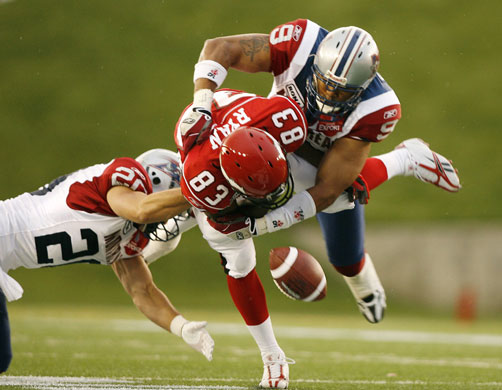The American National Collegiate Athletic Association decided this year to ban all words and logos, all numbers or other symbols, when embedded in the players' eye black. Eye black has been used for centuries to help reduce the glare of sunlight or stadium lights which impair vision of an airborne ball. The decision to ban ‘other use’ came out of the controversial habit of hundreds of college football players using their eye black to boast of their hometown, home area code, or their love for mother or girlfriend. But Tebowa dedicated Christian, decided to use his eye black to display a Bible reference, and so promote his faith in Jesus Christ. After a recent Championship Game, 92 million people googled "John 3:16," the verse Tebow ‘wore’during the game. They needed to find out just what the verse actually said. Do you know?
Anyway, is there a parable here? Why should Tebow have offended other players or spectators, just by putting John 3:16 under his eyes? It suggests American College students might know what the verse says, and don’t need to look it up. Maybe the practice was too confronting, when the symbolic use of eyesight is considered. I “see” means “I understand.” “When you look at me like that, it makes me feel you see my faults!” “How can I make my plays when you look in my direction? What are you saying about me, anyway?” “I’m playing this game for God” means, “I’m obeying Jesus’ words when He implies I should do everything - including sport - with “a single eye” to God’s glory, Matthew 6:22. But, is using eye black in that way really preaching? Apparently so. There must be hope for the future of America!
According to the KJV translators Jesus said in Matthew 6:22,
The light of the body is the eye: if therefore thine eye be single, thy whole body shall be full of light..
I have yet to discover a single more modern translation which has kept the term ‘single eye’ here! Not that “single” is objected to, for being the basic meaning of the original word ‘haplous.’ Rather, it’s that most moderns think Jesus was using the word in a broader sense, of being ‘sound’ or ‘generous.’ The eye is “sound” because there is no speck in it to cloud the vision. Or, it is “generous,” because the translator feels Jesus is still on-topic with his reference to money just before, vss. 19 -21. But, if Jesus meant “sound” in v. 22, he would probably have used the less ambiguous Gk. adjective ‘hugies,’ referring to being sound in health. If he had meant “generous,” then that ties in the expression solely to the immediate context of being generous in giving. But, the saying does not need the supposed link with the earlier verses. It can stand on its own, and the link is not patent. When Jesus gave the Sermon, there’s no proof that the thought in v. 22 immediately succeeded vss 19-21. Matthew collected his material and structured his Gospel without the same concern for rigorous chronological sequence as we might assume. Neither should we assume, as contemporary translations do, that Jesus left the application of v. 22 to be inferred by the audience. On the contrary, it should be spelt out for all to see. Thus, the KJV translators opted for the word’s basic meaning, which is ‘single.’ “It would be quite impossible to improve on’ single’ by which our Translators have rendered it,” says Richard Trench (1). Any other rendering keeps the literal artificially apart from the figurative, as if Jesus never mixed the literal with the metaphorical in the same breath? Here, he immediately compares the figure of the eye filling the body with light with the ‘single eye’ [someone with only one motive in all he does - to glorify God], which pure motive is, metaphorically speaking, a light on a godly person’s path in every step he/she takes. The effect of removing the idea of a single motive from the translation is to deprive the reader of the immediate application that Jesus intended, which is, as Paul put it, Whether therefore ye eat, or drink, or whatsoever ye do, do all to the glory of God. (2)
This lifestyle is otherwise referred to by Paul as having “singleness of heart”.(3)
David the Psalmist described it when praying Teach me thy way, O LORD; I will walk in thy truth: unite my heart to fear thy name. (4) Removing the rendering from which we have derived the expression ‘a single eye’ is a loss to the idiomatic stockpile of the English language.

(1) 1880/1985 R.C. Trench, Synonyms of the New Testament, MI: Eerdmans, p. 204.
(2) 1 Corinthians 10:31
(3) Eph 6:5; Col 3:2
(4) Psalm 86:11
